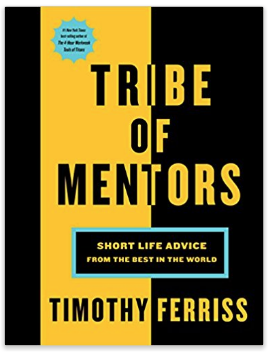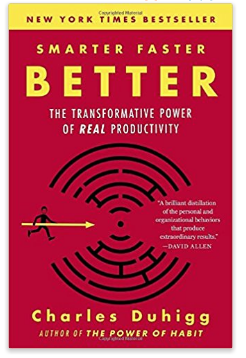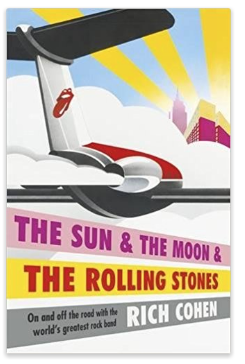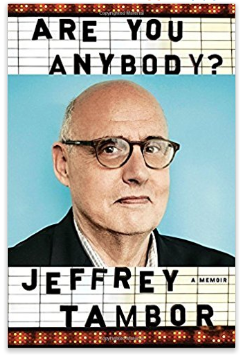I recently read “Tribe of Mentors: Short Life Advice From The Best In The World” by Timothy Ferriss. Below are the quotes I found most interesting. If you like the quotes, buy the book here.
 “What would this look like if it were easy? Is such a lovely and deceptively leveraged question. It’s easy to convince yourself that things need to be hard, that if you’re nto redlining, you’re not trying hard enough. This leads us to look for paths of most resistance, often creating unnecessary hardship in the process.
“What would this look like if it were easy? Is such a lovely and deceptively leveraged question. It’s easy to convince yourself that things need to be hard, that if you’re nto redlining, you’re not trying hard enough. This leads us to look for paths of most resistance, often creating unnecessary hardship in the process.
But what happens if we frame thing sin terms of elegance instead of strain? Sometimes, we find incredible results with ease instead of stress. Sometimes, we “solve” the problem by completely reframing it.” (xii)
“”Normal” people are just crazy people you don’t know well enough.” (xviii)
“The secret to winning any game lies in not trying too hard.” (569)
Terry Crews:
“Life is not a “young man’s game.” It is an “inspired person’s game.” The keys belong to whoever is inspired, and no specific age, sex, gender, or cultural background has a monopoly on inspiration.” (22)
Dita Von Teese:
“Sometimes our shortcomings can lead to greatness, because those of us who have intense desire but lack natural God-given talent sometimes find roundabout ways of realizing dreams.” (77)
Neil Strauss:
“The outcome is not the outcome. In other words, what we think of as endpoints to a goal are really just forks in a road that is endlessly forking. In the big picture of our lives, we really don’t know whether a particular success or failure is actually helping or hurting us.” (98)
“The secret to change and growth is not willpower, but positive community.” (98)
Jerzy Gregorek:
“When disaster happens, it means that something is being asked of me.” (114)
“I told one of my clients who blamed her husband for everything to take 100 percent responsibility for her part in their interactions. “This way,” I said, “You will be free of trying to control him, and you will be able to find constructive solutions in your relationship.” When She left, I realized that the same advice could help me as well.” (115)
Annie Duke:
“Poker has taught me to disconnect failure from outcomes. Just because I lose doesn’t mean I failed, and just because I won doesn’t mean I succeeded – not when you define success and failure around making good decisions that will win in the long run.” (174)
Hal Boyle:
“What makes a river so restful to people is that it doesn’t have any doubt – it is sure to get where it is going, and it doesn’t want to go anywhere else.” (184)
Betty Reese:
“If you think you are too small to be effective, you have never been in the dark with a mosquito.” (204)
Eric Hoffer:
“Every great cause begins as a movement, becomes a business, and eventually degenerates into a racket.” (204)
Jan L. A. van de Snepscheut
“In theory there is no difference between theory and practice. But, in practice, there is.” (204)
Javier Pascual Salcedo:
“Bureaucracy is the art of making the possible impossible.” (205)
Andy Warhol:
“Don’t pay any attention to what they write about you, just measure it in inches.” (205)
Barry Diller:
“Put one dumb foot in front of the other and course correct as you go.” (206)
Walter Chrysler:
“Whenever there is a hard job to be done, I assign it to a lazy man; he is sure to find an easy way of doing it.” (206)
Yiddish saying:
“Lose an hour in the morning, chase it all day.” (207)
Benjamin Disraeli:
“Action may not always bring happiness, but there is no happiness without action.” (210)
Gary Vaynerchuk:
“Everybody’s impatient at a macro, and just so patient at a micro, wasting your days worrying about years. I’m not worried about my years, because I’m squeezing the fuck out of my seconds, let alone my day. It’s going to work out.” (216)
Tim O’Reilly:
“Money in a business is like gas in your car. You need to pay attention so you don’t end up on the side of the road. But your trip is not a tour of gas stations.” (221)
“Clayton Christensen discovered that breakthrough technologies that are not yet mature first succeed by finding radically new markets, and only later disrupt existing markets.” (223)
Bear Grylls:
“When it starts to get tough, all it requires is for you to get tougher and hold on. The magic bit is that when it gets like this, it often means you are near the end goal! One big heave of focus, dedication, and grit, and you often pop out the other end. Look around you, though, and you see that most people are gone – they gave up in that final bit of hurting.” (231)
Frank Wilczek:
“If you don’t make mistakes, you’re not working on hard enough problems. And that’s a big mistake.” (253)
Sarah Elizabeth Lewis:
“The main thing is to keep the main thing the main thing.” (338)
BJ Miller, MD:
“Don’t believe everything you think.” (356)
Maurice Ashley:
“Greatness is not a final destination, but a series of small acts done daily in order to constantly rejuvenate and refresh our skills in a daily effort to become a better version of ourselves.” (370)
Leonardo Da Vinci:
“It had long since come to my attention that people of accomplishment rarely sat back and let things happen to them. THey went out and happened to things.” (389)
Darren Aronofsky:
“Most of the game is about persistence. It is the most important trait. Sure, when you get an opportunity, you have to perform and you have to exceed beyond all expectations, but getting that chance is the hardest part. So keep the vision clear in your head and every day refuse all obstacles to get to the goal.” (399)
Evan Williams:
“Be in a hurry to learn, not in a hurry to get validation. In a team environment, you will make a much better impression if it seems like you’re not at all worried about yourself. It’s okay to actually be worried about yourself – everyone is – just don’t seem like it. If you resist asking for too much, you will often get more.” (402)
John Gunther:
“All happiness depends on a leisurely breakfast.” (418)
Sun Tzu:
“Strategy without tactics is the slowest route to victory. Tactics without strategy is the noise before defeat.” (436)
Terry Laughlin:
“The key to that satisfaction is to reach the nirvana in which love of practice for its own sake (intrinsic) replaces the original goal (extrinsic) as our grail. The antithesis of mastery is the pursuit of quick fixes.” (441)
Scott Belsky:
“More often than not, great opportunities look unattractive on the surface. What makes an opportunity great is upside. If the potential upside were explicitly clear, the opportunity would have already been taken.” (459)
Whitney Cummings:
“Don’t waste your time socializing with people who you think can help you. Just get better, and opportunities will naturally present themselves once you deserve them. ONly focus on things within your control. And if you don’t know what those things are, find someone who can tell ou. Don’t network, just work.” (485)
Rick Rubin:
“There are so many elements that go into making something successful – all of which are out of your control. You’re in control of making your project the best it can possibly be for you, but you are powerless over most of what happens after that.” (489)
Ben Silbermann:
“Assume that anything worthwhile is going to take five to ten years.” (496)
Stephanie McMahon:
“Before I go to bed, I try to think of three things that made me happy during the day. It’s an evolution of thinking of three things that I’m grateful for.” (511)
Jocko Willink:
“”Discipline equals freedom.” Everyone wants freedom. We want to be physically free and mentally free. We want to be financially free and we want more free time. But where does that freedom come from? How do we get it? The answer is the opposite of freedom. The answer is discipline. You want more free time? Follow a more disciplined time-management system. You want financial freedom? Implement long-term financial discipline in your life. DO you want to be physically free to move how you want, and to be free from many health issues caused by poor lifestyle choices? Then you have to have the discipline to eat healthy food and consistently work out. We all want freedom. DIscipline is the only way to get it.” (538)
Liked the quotes? Buy the book here.





